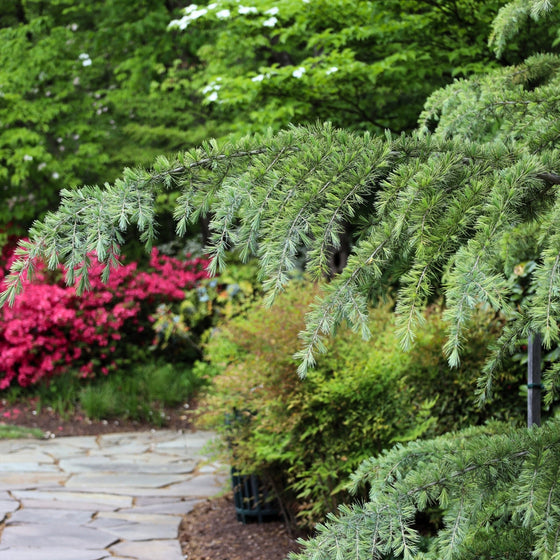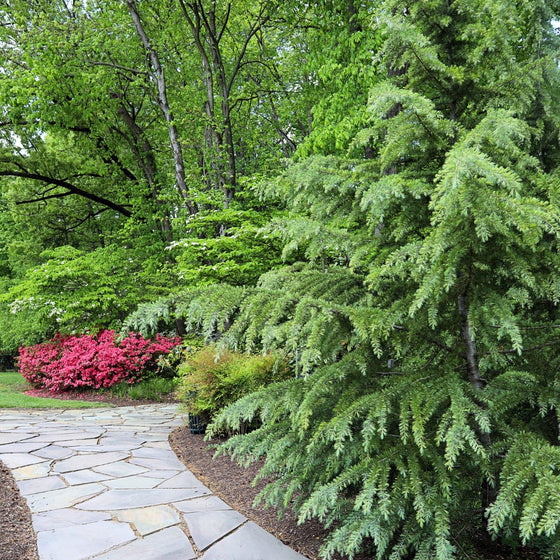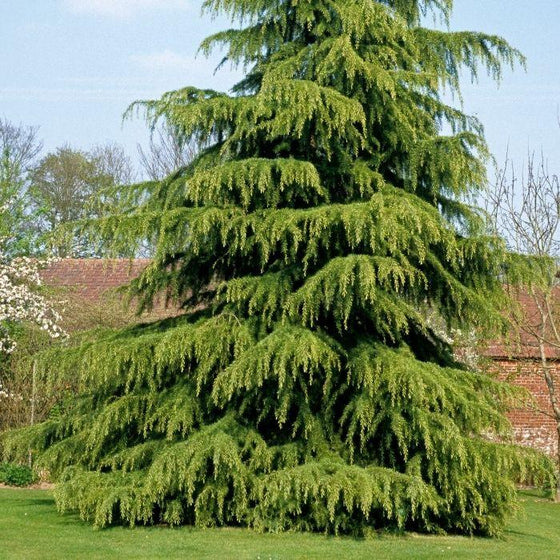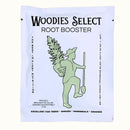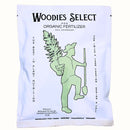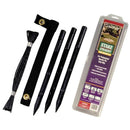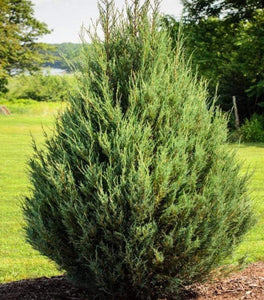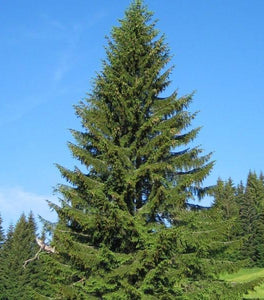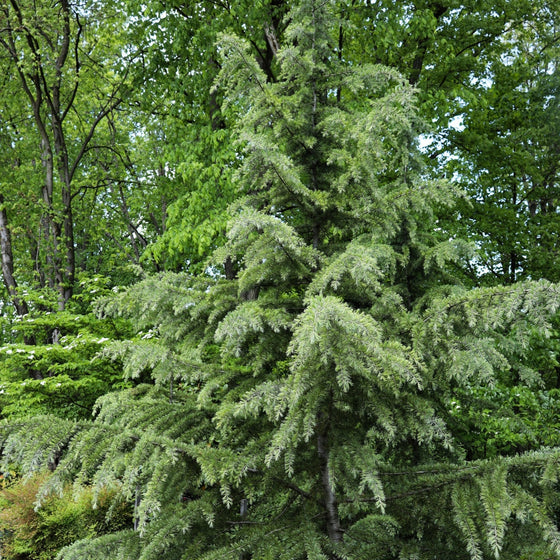
Images Depict Mature Plants
Deodar Himalayan Cedar Trees for Sale Online
The Deodar Cedar tree, also known as Himalayan Cedar, is a large, fast-growing evergreen tree with a pyramidal form and pendulous branches.
Native to the Himalayas, hence their nickname, these large pyramidal trees can reach heights between 40 and 50 feet tall and widths as large as 30 feet! Their dense form and widespread growth make them ideal for use as a windbreak or privacy screen. Deodars are also extremely popular as focal points in large gardens and landscapes!
The light grayish-green needles and upright-facing cones make this a beautiful specimen in the landscape. Beyond its physical beauty, people love the Deodar Cedar for its hearty nature. These blue-green trees are very drought-tolerant and have an aroma that acts as a natural insect repellent. Additionally, they require little to no maintenance to maintain their immaculate pyramid shape.
These gorgeous evergreen trees are best suited for USDA zones 7-9. Ideal conditions for Deodar trees include full sun and a well-draining soil medium.
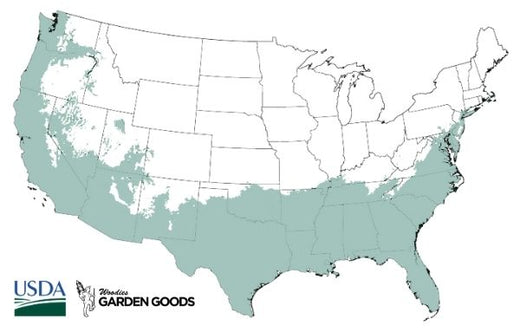
| Hardiness Zone: | 7-10 |
|---|---|
| Mature Height: | 45 to 50 feet tall |
| Mature Width: | 20 to 30 feet wide |
| Sunlight: | Full Sun |
| Foliage Color: | Gray-Green |
| Habit: | Upright spreading |
| Soil: | Very tolerant of dry soil types and salt spray. |
How to Care for Deodar Cedar
Be sure to read about the recommended care instructions to keep this plant healthy and thriving for years to come!
STEP 1: PLANTING
In general, the hole should be big enough to accommodate the size of the root ball. Some recommend a sloped-side hole about a foot deep and five times as wide as the root ball. The root collar should be above the level of the land. Place the tree in the hole. Aim for the center of the hole. Once inside the hole, the root ball should be above 1-1.5 inches (2.54-3.81 cm) above the ground on all sides, so there is a slight crown to allow for drainage and proper mulching. If the tree collar is lower than ground level when you place it in the hole, add some soil under the root bulb and re-situate the tree. Point the roots downward as best possible, and fill the remaining hole with the pile of dug up soil. Compact the soil very tightly around the roots, and remove any air pockets. Use good planting soil and fresh compost to guarantee the roots have plenty of nutrients
STEP 2: FERTILIZE
We recommend when planting your plants to use Bio-tone starter fertilizer by Espoma. We have trialed many so called “starter fertilizers” over the years and have come to rely on Bio-tone exclusively for our own use. Simply mix the recommended amount of Bio-tone into the back fill soil and water in generously when back filled. Bio-tone® Starter Plus is an all-natural plant food that is combined with a stronger concentration of beneficial bacteria along with both endo and ecto mycorrhizae. Basically the “good” fungus in Bio-tone colonizes on the growing roots of your newly planted plant and does not allow disease causing fungus to attack the new roots. It has also shown promise in stimulating the growth of the new roots which means quicker establishment for you plant. After establishment and during the following years we recommend Holly-tone used at the recommended rates. It is also organic and slow release which will feed your trees the proper amount of nutrients over a period of time rather than all at once which can burn the root tips and actually have the opposite effect of slowing down plant growth. It also will help to maintain the acid level in the soil that Deodar Cedar Trees need to thrive.
STEP 3: WATER
Deodar Cedar Trees have a shallow root system so they need to be watered often in the first year after being planted. If the soil is sandy or drains really quickly or if it’s been excessively hot out, you should check the soil around your tree to see if it’s getting enough water. The soil should be wet about 1 inch below the surface. To fix this issue, simply water your Himalayan Cedar more often and/or for longer periods of time. Once established, deodar Cedar Trees can tolerate periods of drought.
STEP 4: MULCH
Lay a 2- to 3-inch layer of organic mulch, such as pine needles, over the soil surrounding the cedar tree without pressing it against the trunk; mulch assists in deterring weeds, conserving moisture and lowering pH.

